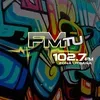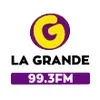Música urbana Live Radio Stations
Radio Stations
- @FM (Celaya) - 99.5 FM - XHAF-FM - Radiorama - Celaya, GT

- @FM (Celaya) - 99.5 FM - XHAF-FM - Radiorama - Celaya, GT

- @FM (Culiacán) - 95.3 FM - XHIN-FM - Radiorama - Culiacán, SI

- @FM (Durango) - 99.7 FM - XHOH-FM - Radiorama - Durango, GR

- @FM (Laguna) - 94.7 FM - XHTJ-FM - Radiorama - Gómez Palacio, DG / Torreón, CO

- @FM (Piedras Negras) - 101.7 FM - XHCPN-FM - Radiorama - Piedras Negras, CO@FM (Piedras Negras) - 101.7 FM - XHCPN-FM - Radio...
- @FM (Tepic) - 98.5 FM - XHEPIC-FM - Radiorama - Tepic, NA

- @FM Piedras Negras - 101.7 FM - XHCPN-FM - Radiorama - Piedras Negras, CO

- ACTIVA (Hermosillo) - 89.7 FM - XHEDL-FM - Grupo RADIOSA - Hermosillo, SO

- Arroba FM (Chihuahua) - 1360 AM - XEDI-AM - Radiorama - Chihuahua, Chihuahua

- Arroba FM (Chihuahua) - 88.5 FM - XHDI-FM - Radiorama - Chihuahua, ChihuahuaArroba FM (Chihuahua) - 88.5 FM - XHDI-FM - Radior...
- Arroba FM (Culiacán) - 95.3 FM - XHIN-FM - Radiorama - Culiacán, SinaloaArroba FM (Culiacán) - 95.3 FM - XHIN-FM - Radiora...
- Arroba FM (Piedras Negras) - 101.7 FM - XHCPN-FM - Radiorama - Piedras Negras, Coahuila

- Digital 102-9 (Monterrey) - 102.9 FM - XHMG-FM - Grupo Radio Alegría - Monterrey, NL

- Digital 106.5 (Zacatecas) - 106.5 FM - XHLK-FM - Grupo Radiofónico ZER - Zacatecas, ZA

- Exa FM 102.7 Costa Rica

- Exa FM Ciudad Acuña - 91.5 FM - XHDH-FM - Grupo Región - Ciudad Acuña, CO

- Exa FM Ciudad del Carmen - 99.7 FM / 1070 AM - XHIT-FM / XEIT-AM - Radiorama - Ciudad del Carmen, CM

- Exa FM Comitán - 95.7 FM - XHCTS-FM - Radio Cañón / NTR Medios de Comunicación - Comitán, CS

- Exa FM Córdoba - 91.3 FM - XHPT-FM - Radio Comunicaciones de las Altas Montañas - Córdoba, VE

- Exa FM Costa Rica - 102.7 FM - CDR, Central de Radios - San José, Costa RicaExa FM Costa Rica - 102.7 FM - CDR, Central de Rad...
- Exa FM Durango - 101.3 FM - XHCAV-FM - Grupo Radio Carlos C. Armas Vega - Durango, DG

- Exa FM El Salvador

- Exa FM Guatemala

- Exa FM Honduras

- Exa FM Honduras

- Exa FM Mexicali - 91.5 FM - XHJC-FM - MVS Radio - Mexicali, BC

- Exa FM Nuevo Laredo - 95.7 FM - XHBK-FM - Nuevo Laredo, TM

- Exa FM Oaxaca - 98.5 FM - XHNR-FM - ORO (Organización Radiofónica de Oaxaca) - Oaxaca, OA

- Exa FM Piedras Negras - 107.1 FM - XHPNS-FM - Grupo Zócalo - Piedras Negras, CO

- Exa FM Querétaro - 95.5 FM - XHOE-FM - Multimundo Radio - Querátaro, QT

- Exa FM Querétaro - 95.5 FM - XHOE-FM - Multimundo Radio - Querátaro, QT

- Exa FM República Dominicana - 96.9 FM - HIK52 - Santo Domingo, República Dominicana

- Exa FM Taxco - 92.9 FM - XHTXO-FM - Radio Cañón / NTR Medios de Comunicación - Taxco, GR

- Exa FM Tehuacán - 102.9 FM - XHWJ-FM - RadioTH Comunicaciones - Tehuacán, PU

- Exa FM Tijuana - 91.7 FM - XHGLX-FM - MVS Radio - Tijuana, BC

- Exa FM Torreón - 95.5 FM - XHMP-FM - Grupo Radio Estéreo Mayran - Torreón, CO

- Exa FM Tuxtla - 98.5 FM - XHCQ-FM - Grupo Radio Digital - Tuxtla Gutiérrez, CS

- Exa FM Tuxtla - XHCQ-FM - Grupo Radio Digital - Tuxtla Gutiérrez, CS

- Exa FM Veracruz - 93.3 FM - XHPS-FM - MVS Radio - Veracruz, VE

- Exa FM Villahermosa - 88.5 FM - XHKV-FM - Radio Cañón / NTR Medios de Comunicación - Villahermosa, TB

- FMTU (Monterrey) - 103.7 FM - XHFMTU-FM - Multimedios Radio - Monterrey, NL

- FMTU (Torreón) - 102.7 FM - XHRCA-FM - Multimedios Radio - Torreón, CO

- FMTU (Torreón) - 102.7 FM - XHRCA-FM - Multimedios Radio - Torreón, CO

- La Grande 99.3

- La Top - 107.7 FM - Grupo Invosa - Tegucigalpa, Honduras

- LaBakana - La Para UrbanaLaBakana - La Para Urbana
- Loca FM Urban

- Loca FM Urban

- LOS40 Agua Prieta - 99.9 FM - XHNNO-FM - Grupo Radiofónico ZER - Agua Prieta, SO

Choose a Genre
"Música Urbana" Radio Stations: The Beat of the Streets
"Música urbana" radio stations have become a dominant force in global music, offering a window into the energetic, expressive world of urban culture. The genre encompasses a rich blend of reggaeton, trap, hip-hop, and other styles that are deeply rooted in the experiences of urban youth. Known for its catchy beats, rhythmic flow, and often explicit lyrics, "música urbana" reflects the pulse of modern city life and resonates with listeners who identify with its cultural influences.
The Sound of the Streets: A Fusion of Cultures
At its core, "música urbana" radio stations are characterized by their diverse sound, mixing Latin American and Caribbean rhythms with electronic beats, hip-hop, and rap. These stations often feature an eclectic mix of artists from various backgrounds, creating a sound that is both contemporary and deeply reflective of the streets.
Genres like reggaeton and trap, which emerged from the urban landscapes of Puerto Rico, Colombia, and other Latin American countries, have evolved into global phenomena. The infectious beats and often rebellious lyrics of reggaeton and trap resonate with a wide audience, from teens to young adults who identify with the stories and struggles expressed through the music.
The genre's fusion of cultures allows "música urbana" to speak to a broad range of listeners. It incorporates the vibrancy and passion of Latin American music while also drawing on the influences of American hip-hop, making it a truly international genre that transcends borders and languages.
From Street to Studio: The Rise of Urban Artists
"Música urbana" radio stations play an essential role in promoting both established and up-and-coming urban artists. These stations provide a platform for artists who often begin their careers in the streets or underground music scenes, giving them an opportunity to reach a global audience.
Popular artists like Bad Bunny, J Balvin, and Anuel AA, who have roots in urban communities, have used this genre to rise to superstardom, bringing reggaeton and trap to the mainstream. But "música urbana" is also a genre where emerging artists can quickly make a name for themselves, with new voices constantly entering the scene and pushing the boundaries of the music.
The genre is not just about the music itself but also about the culture it represents. Urban music often addresses issues such as social inequality, poverty, love, and empowerment. These themes connect with listeners on a personal level, making the music feel like a reflection of their own experiences.
The Culture Behind the Music
In addition to music, "música urbana" radio stations also delve deep into the culture that defines the genre. Many stations feature interviews with artists, DJs, and producers who share insights into their creative processes, struggles, and successes. These conversations offer a unique glimpse into the lives of the individuals shaping the urban music scene.
Some "música urbana" stations also explore the cultural events and movements that influence urban communities. Whether it's the influence of street fashion, the impact of social media on music, or the celebration of significant cultural moments, these stations help listeners understand the wider context behind the music.
Urban Lifestyle: Fashion, Sports, and Nightlife
Beyond music, "música urbana" radio stations often reflect the broader urban lifestyle, covering topics like fashion, sports, and nightlife. These stations tap into the dynamic world of city living, where trends are set, and culture is constantly evolving. For many listeners, these radio stations become a cultural hub where they can stay up to date on the latest in fashion, celebrity news, and trends that shape their lives.
Nightlife and party culture are also an integral part of "música urbana." Many of the songs and artists that dominate the genre are closely tied to the vibrant club scene and social gatherings. The music creates the soundtrack for parties and celebrations, and radio stations dedicated to "música urbana" provide an immersive experience that brings listeners closer to this high-energy world.
Shaping the Future of Music
Overall, "música urbana" radio stations are an essential part of the global music landscape. They give a voice to the urban communities from which the genre originates and help to shape the future of music by pushing the boundaries of what is possible in sound and style.
By providing a platform for both established stars and emerging talents, "música urbana" radio stations contribute to the ongoing evolution of urban music. They are more than just a source of entertainment—they are a window into the lives, culture, and stories of the urban youth who drive this powerful genre.
Whether you're a long-time fan of reggaeton, trap, or hip-hop, or you're new to the genre, "música urbana" radio stations offer something for everyone who wants to connect with the rhythms and stories of modern urban life.
"Música urbana" radio stations have become a dominant force in global music, offering a window into the energetic, expressive world of urban culture. The genre encompasses a rich blend of reggaeton, trap, hip-hop, and other styles that are deeply rooted in the experiences of urban youth. Known for its catchy beats, rhythmic flow, and often explicit lyrics, "música urbana" reflects the pulse of modern city life and resonates with listeners who identify with its cultural influences.
The Sound of the Streets: A Fusion of Cultures
At its core, "música urbana" radio stations are characterized by their diverse sound, mixing Latin American and Caribbean rhythms with electronic beats, hip-hop, and rap. These stations often feature an eclectic mix of artists from various backgrounds, creating a sound that is both contemporary and deeply reflective of the streets.
Genres like reggaeton and trap, which emerged from the urban landscapes of Puerto Rico, Colombia, and other Latin American countries, have evolved into global phenomena. The infectious beats and often rebellious lyrics of reggaeton and trap resonate with a wide audience, from teens to young adults who identify with the stories and struggles expressed through the music.
The genre's fusion of cultures allows "música urbana" to speak to a broad range of listeners. It incorporates the vibrancy and passion of Latin American music while also drawing on the influences of American hip-hop, making it a truly international genre that transcends borders and languages.
From Street to Studio: The Rise of Urban Artists
"Música urbana" radio stations play an essential role in promoting both established and up-and-coming urban artists. These stations provide a platform for artists who often begin their careers in the streets or underground music scenes, giving them an opportunity to reach a global audience.
Popular artists like Bad Bunny, J Balvin, and Anuel AA, who have roots in urban communities, have used this genre to rise to superstardom, bringing reggaeton and trap to the mainstream. But "música urbana" is also a genre where emerging artists can quickly make a name for themselves, with new voices constantly entering the scene and pushing the boundaries of the music.
The genre is not just about the music itself but also about the culture it represents. Urban music often addresses issues such as social inequality, poverty, love, and empowerment. These themes connect with listeners on a personal level, making the music feel like a reflection of their own experiences.
The Culture Behind the Music
In addition to music, "música urbana" radio stations also delve deep into the culture that defines the genre. Many stations feature interviews with artists, DJs, and producers who share insights into their creative processes, struggles, and successes. These conversations offer a unique glimpse into the lives of the individuals shaping the urban music scene.
Some "música urbana" stations also explore the cultural events and movements that influence urban communities. Whether it's the influence of street fashion, the impact of social media on music, or the celebration of significant cultural moments, these stations help listeners understand the wider context behind the music.
Urban Lifestyle: Fashion, Sports, and Nightlife
Beyond music, "música urbana" radio stations often reflect the broader urban lifestyle, covering topics like fashion, sports, and nightlife. These stations tap into the dynamic world of city living, where trends are set, and culture is constantly evolving. For many listeners, these radio stations become a cultural hub where they can stay up to date on the latest in fashion, celebrity news, and trends that shape their lives.
Nightlife and party culture are also an integral part of "música urbana." Many of the songs and artists that dominate the genre are closely tied to the vibrant club scene and social gatherings. The music creates the soundtrack for parties and celebrations, and radio stations dedicated to "música urbana" provide an immersive experience that brings listeners closer to this high-energy world.
Shaping the Future of Music
Overall, "música urbana" radio stations are an essential part of the global music landscape. They give a voice to the urban communities from which the genre originates and help to shape the future of music by pushing the boundaries of what is possible in sound and style.
By providing a platform for both established stars and emerging talents, "música urbana" radio stations contribute to the ongoing evolution of urban music. They are more than just a source of entertainment—they are a window into the lives, culture, and stories of the urban youth who drive this powerful genre.
Whether you're a long-time fan of reggaeton, trap, or hip-hop, or you're new to the genre, "música urbana" radio stations offer something for everyone who wants to connect with the rhythms and stories of modern urban life.